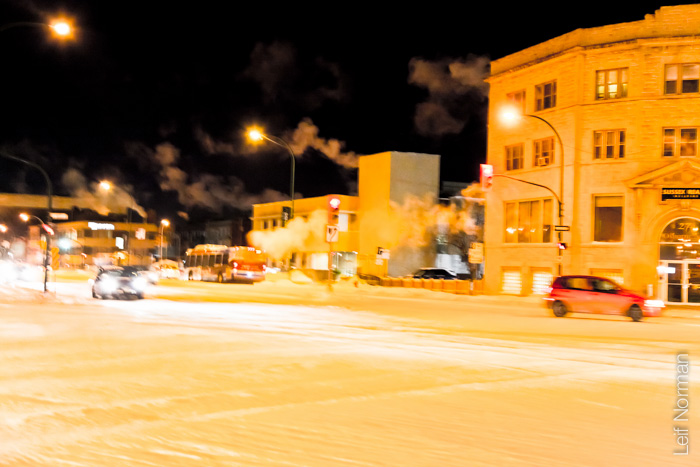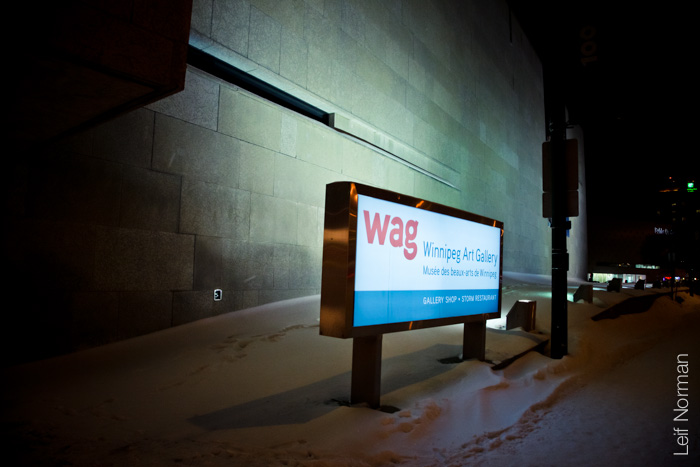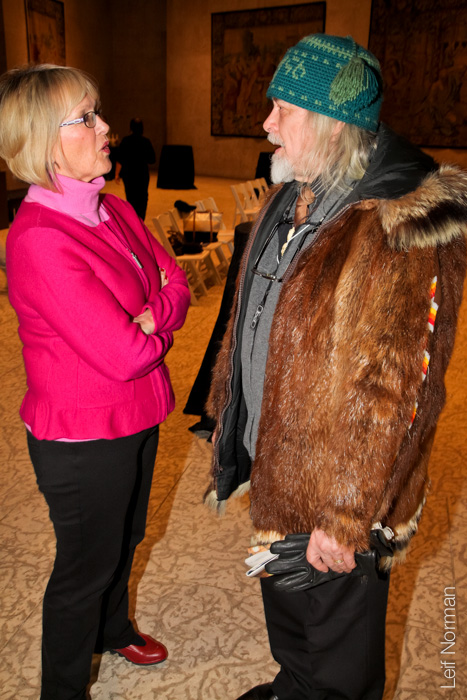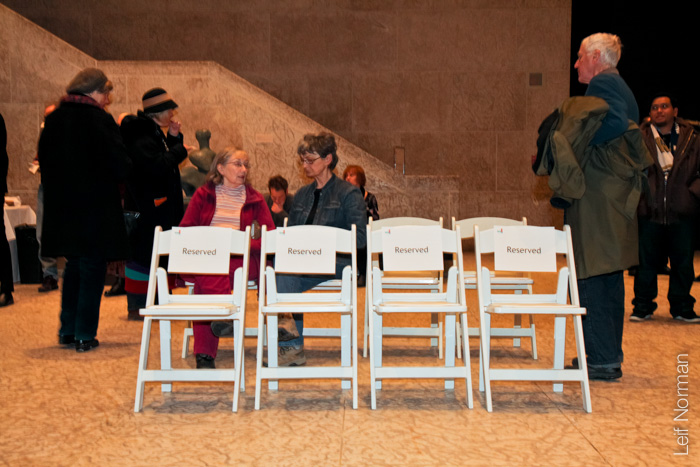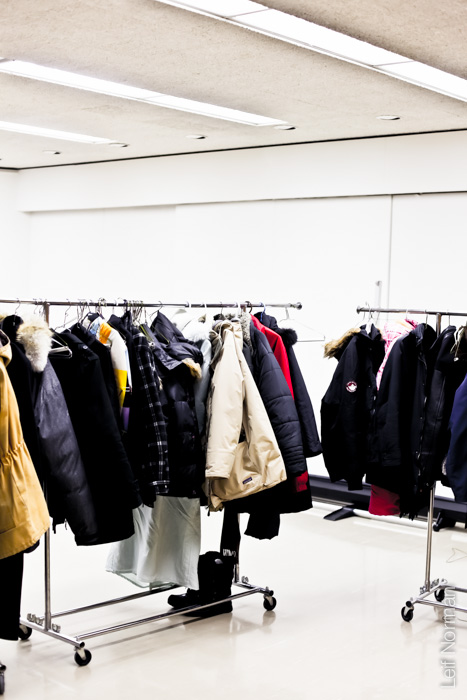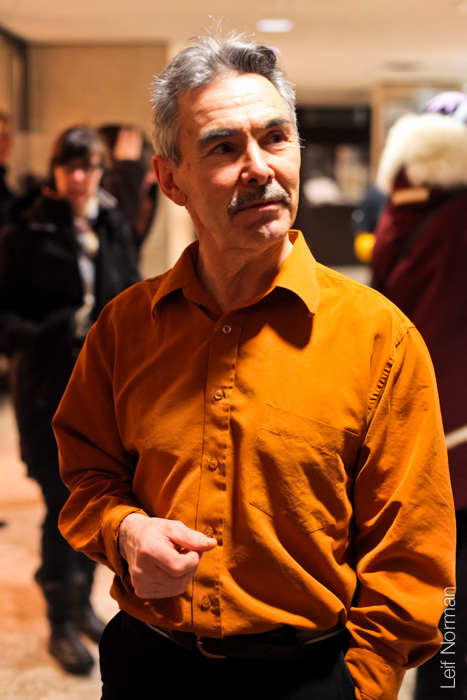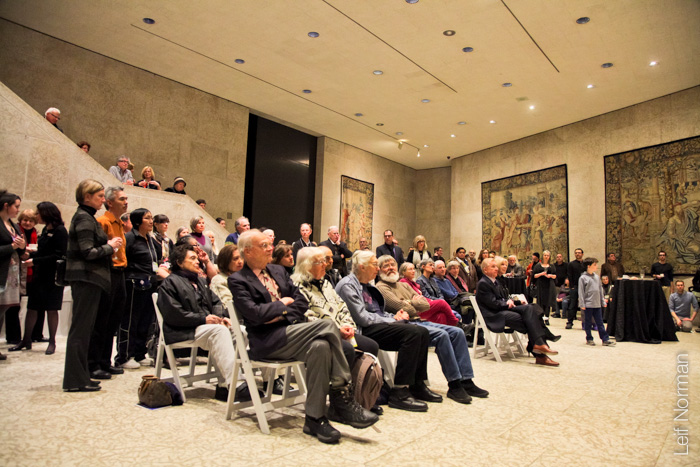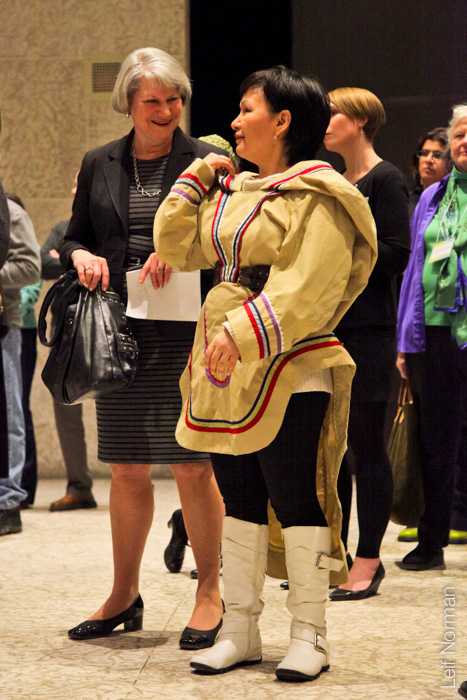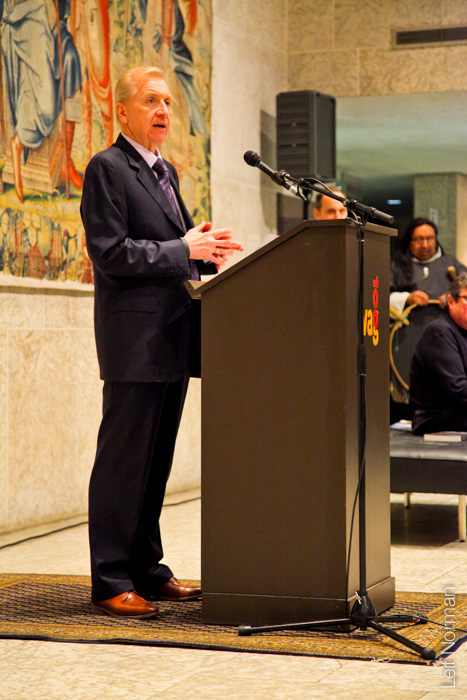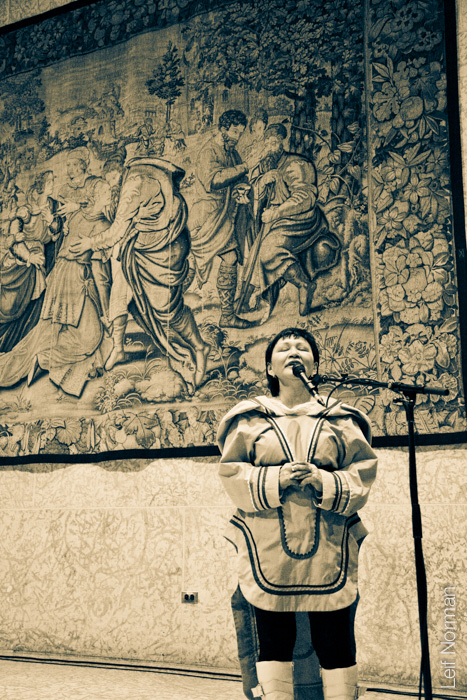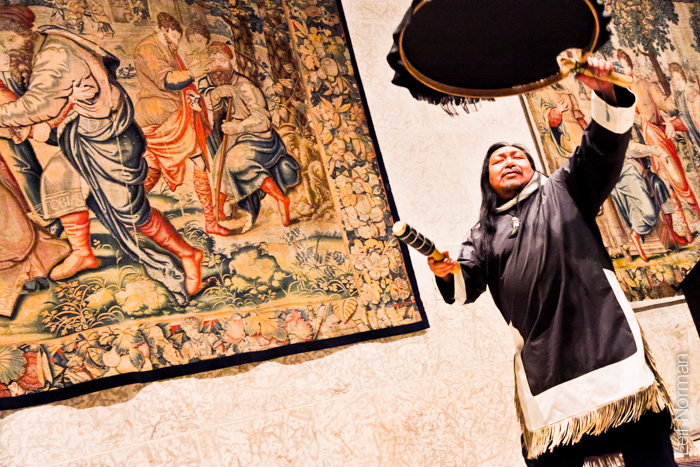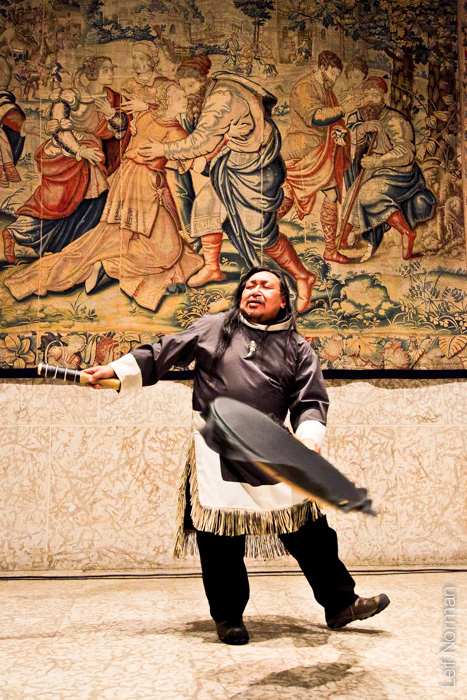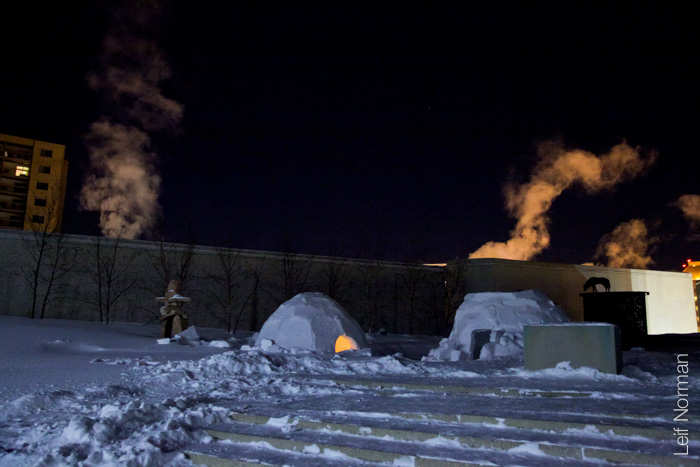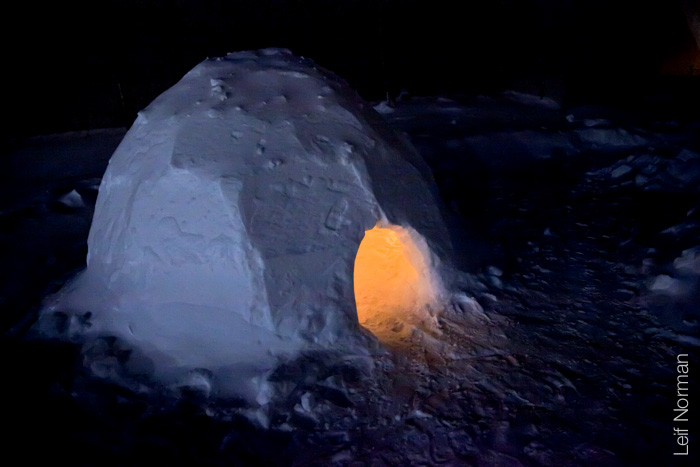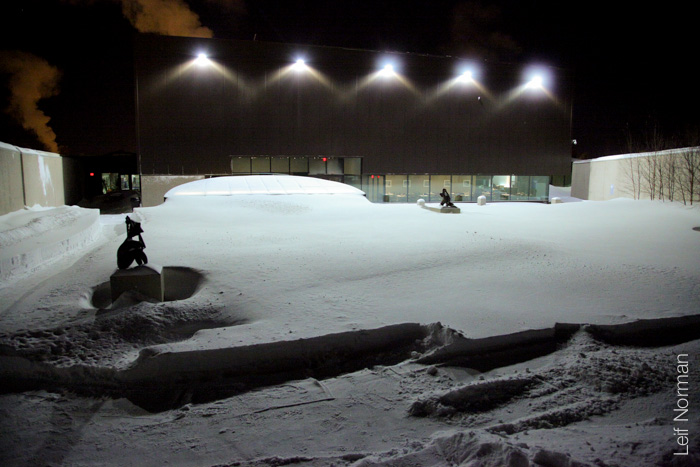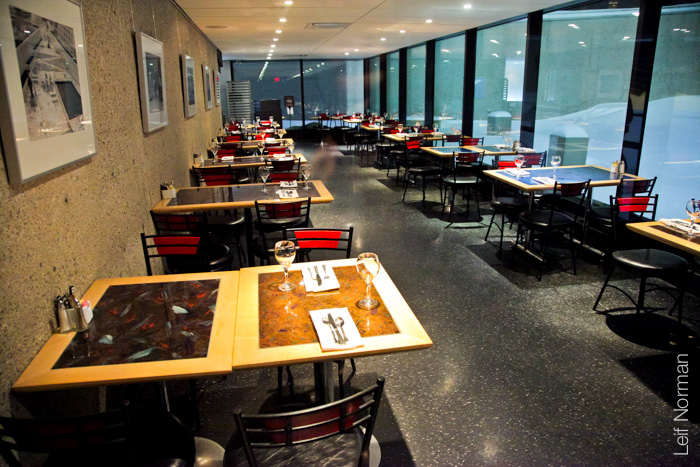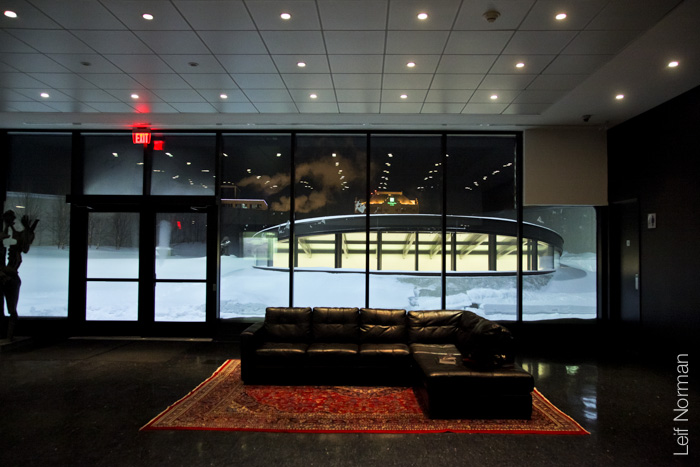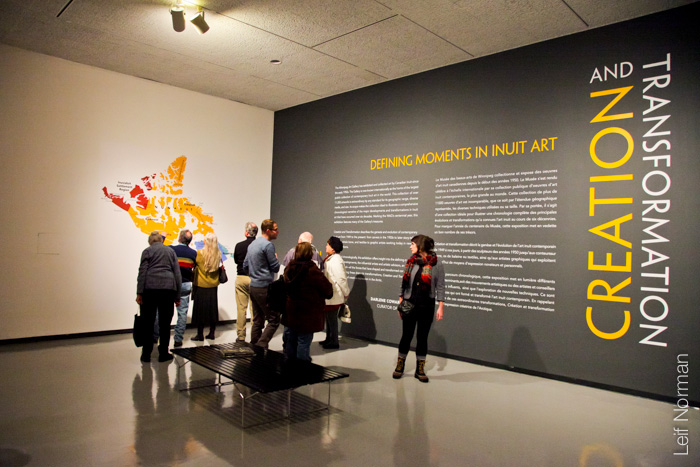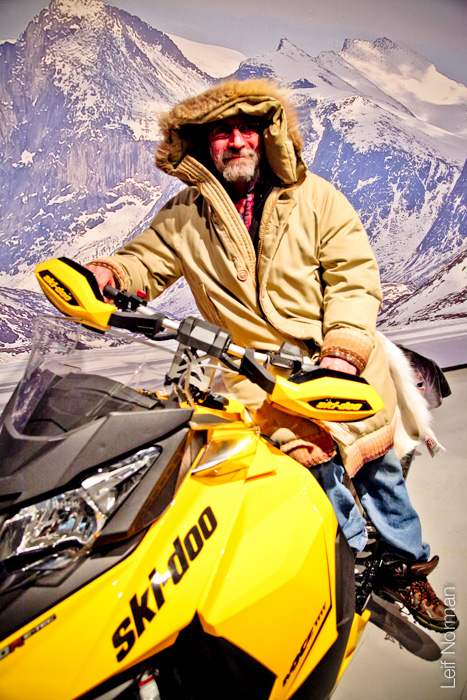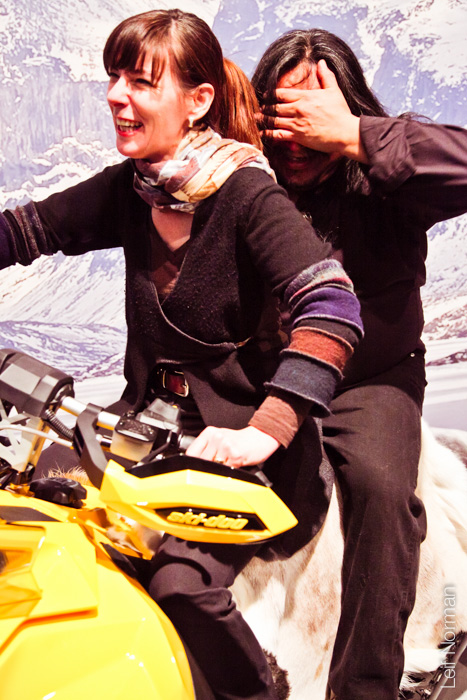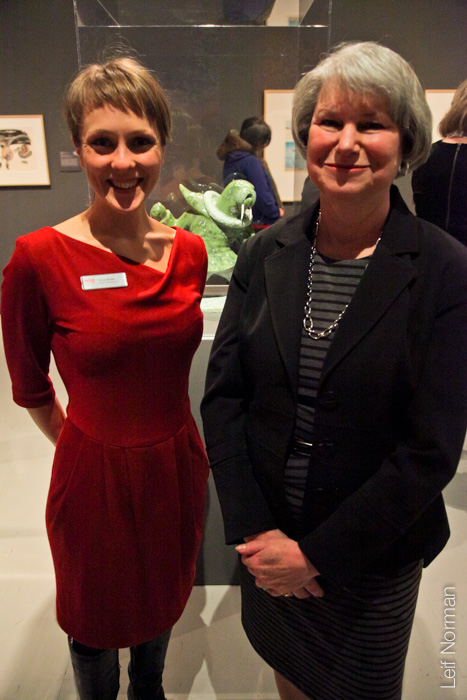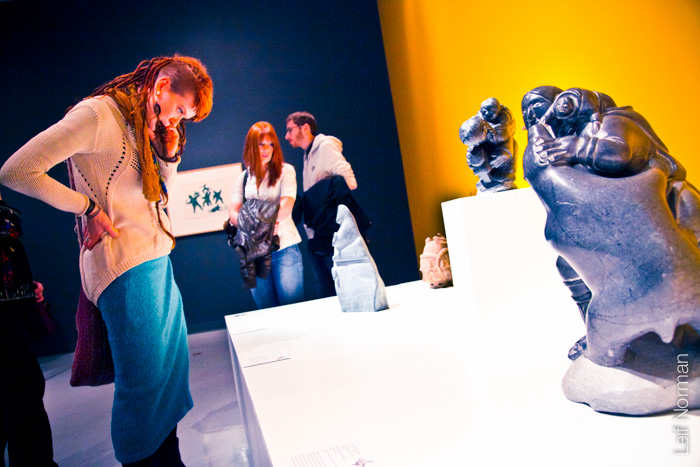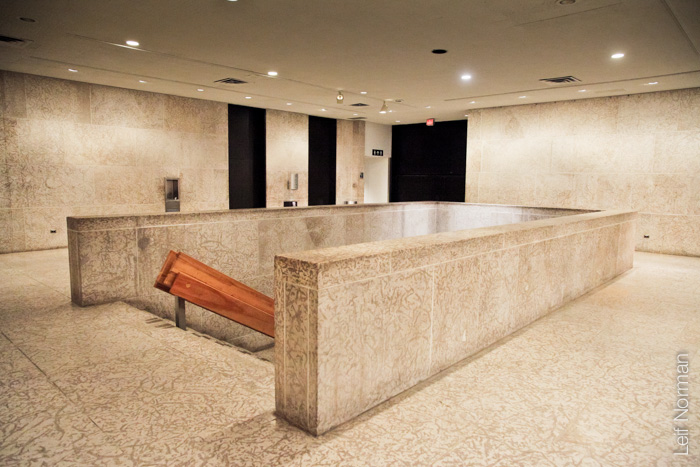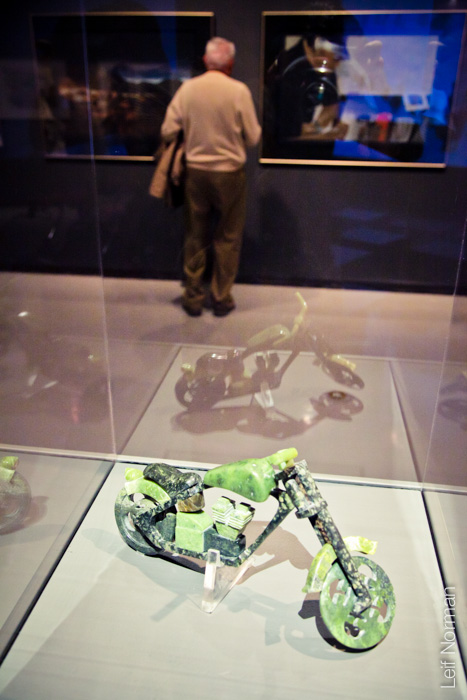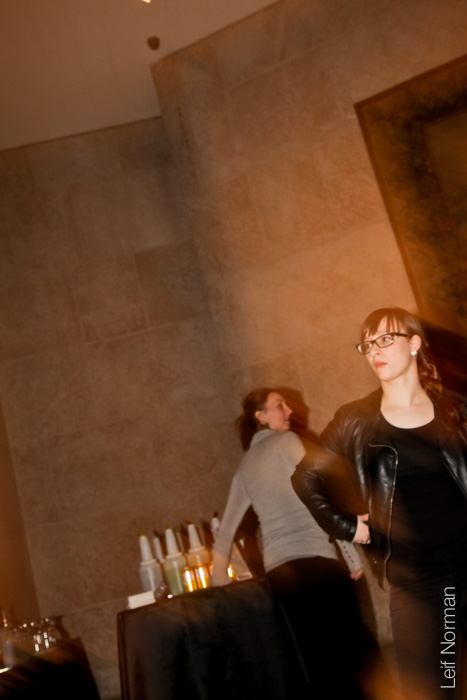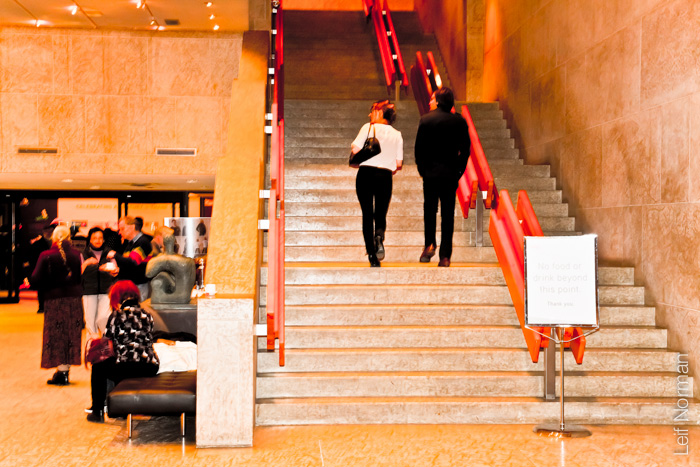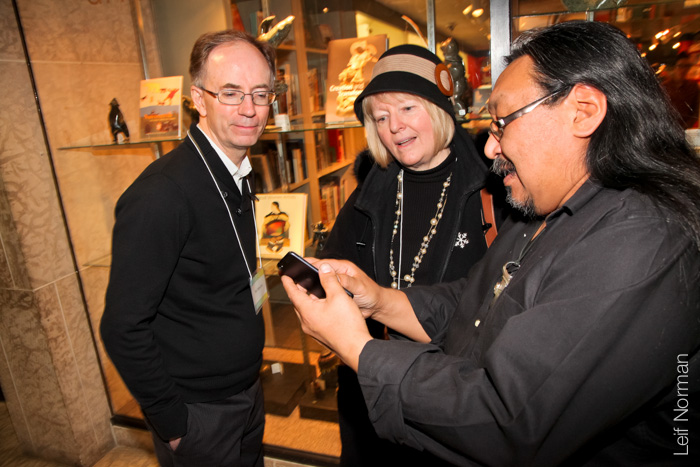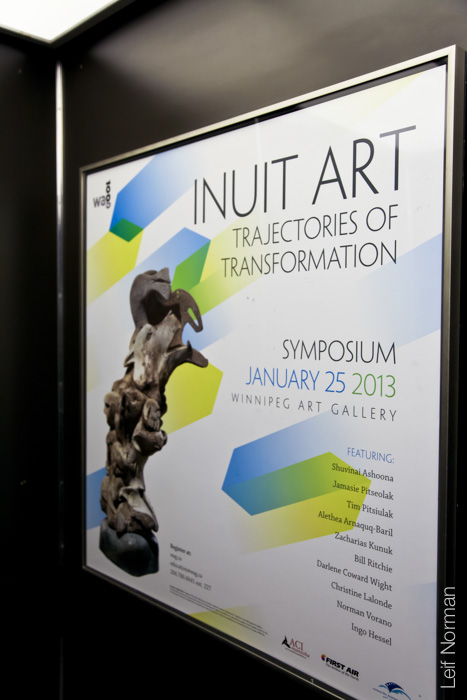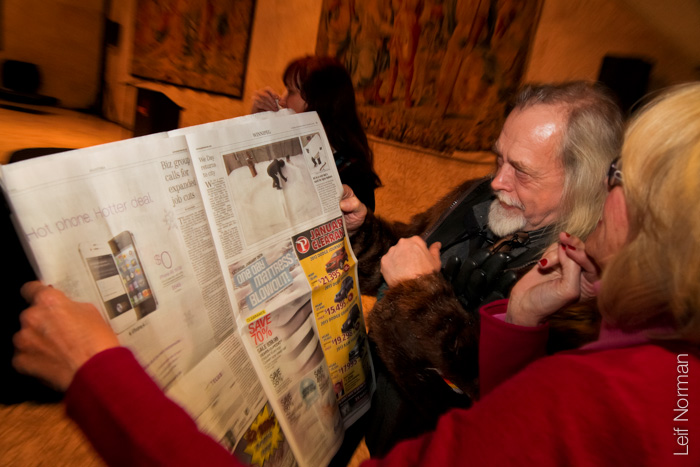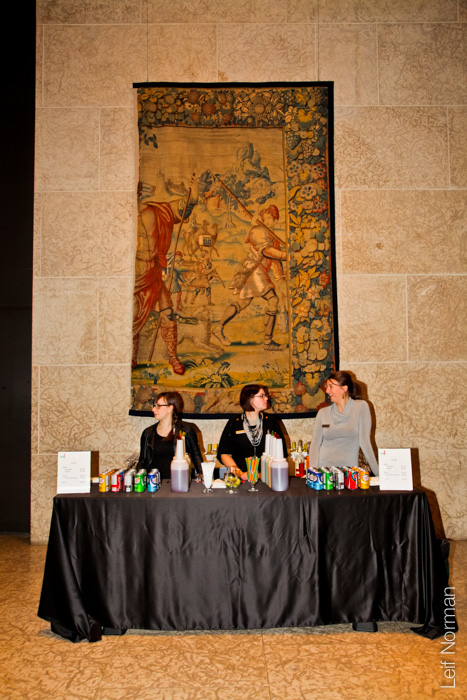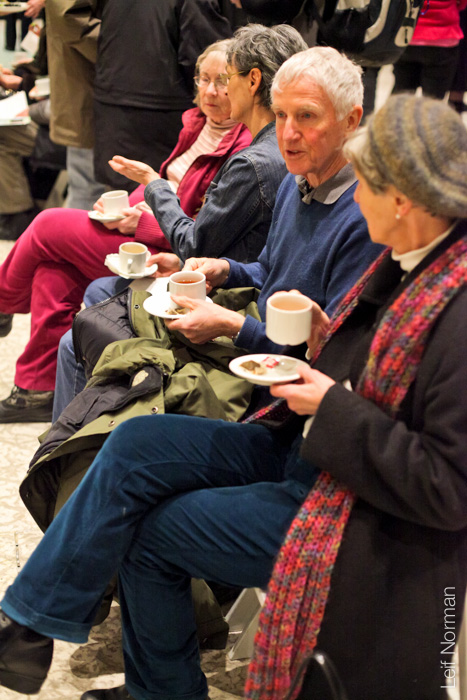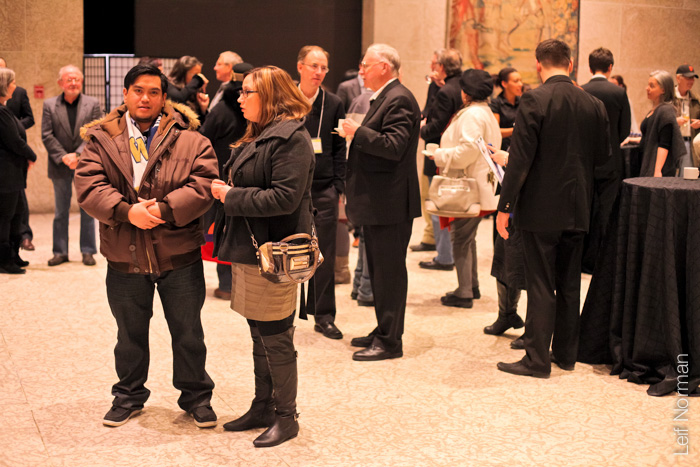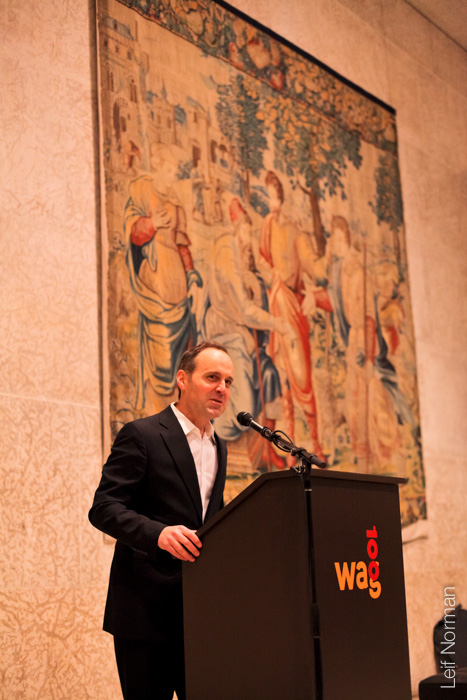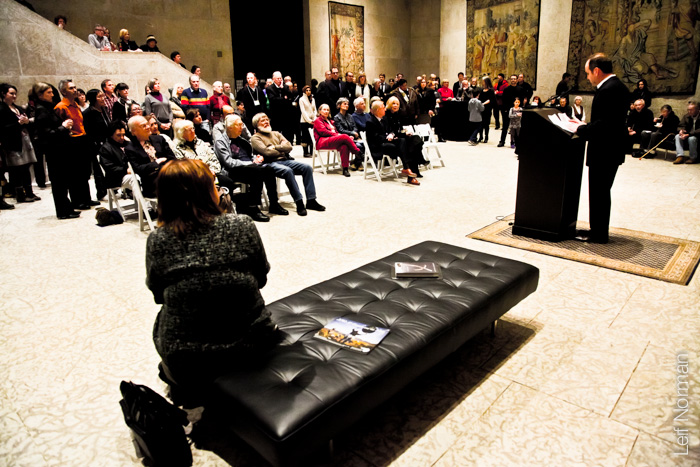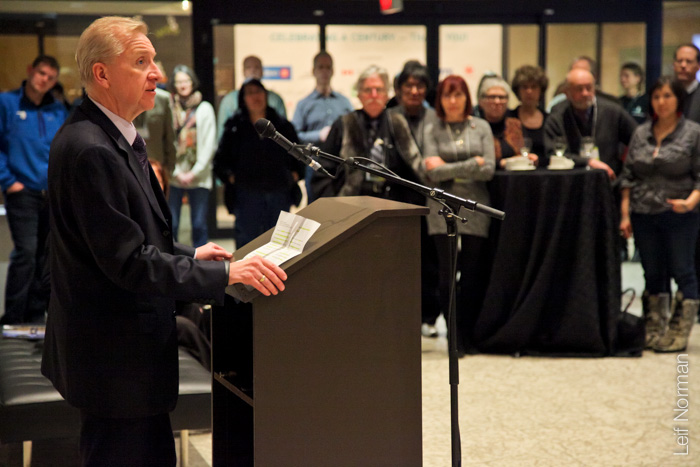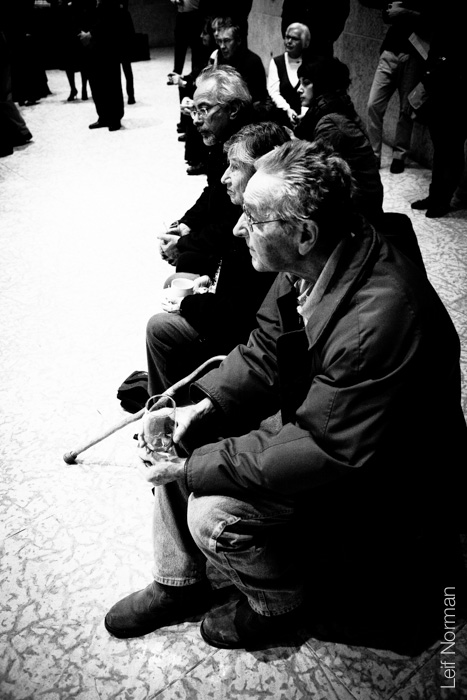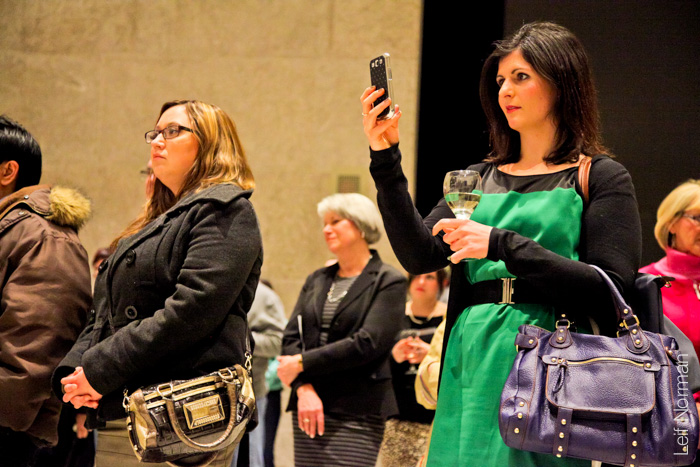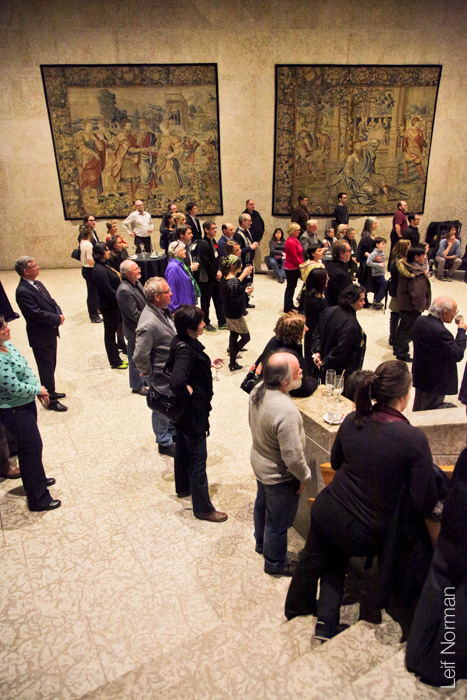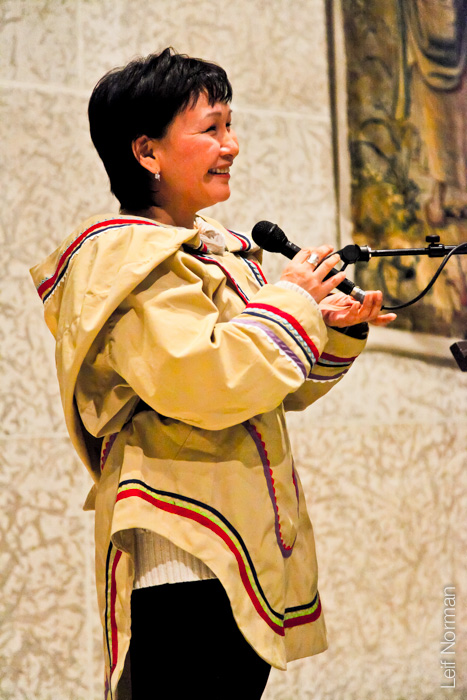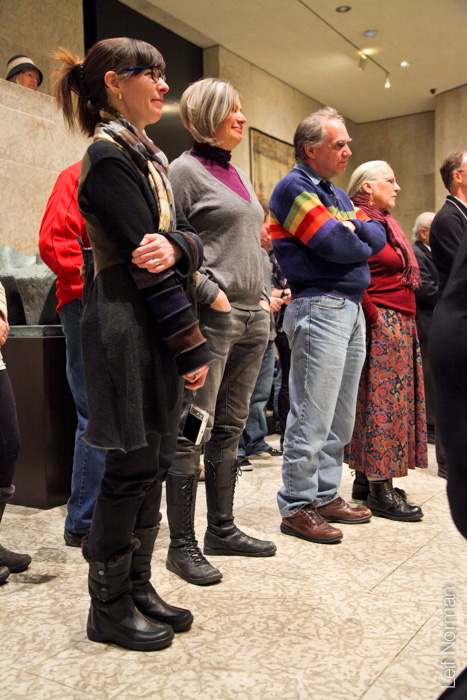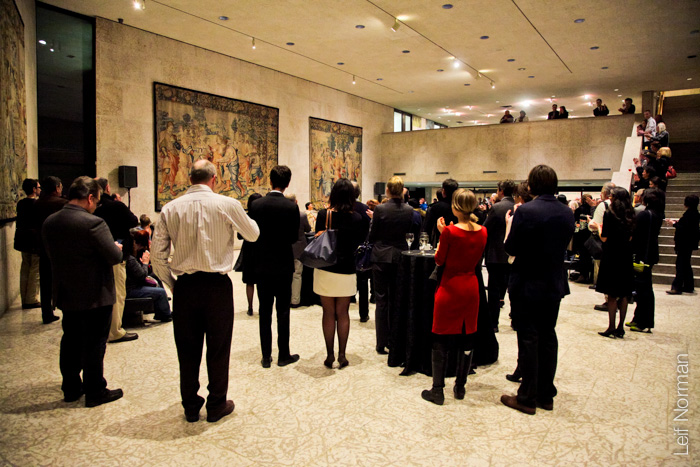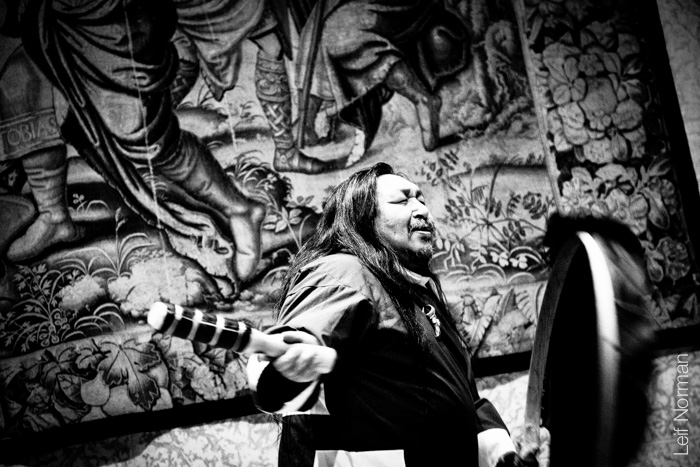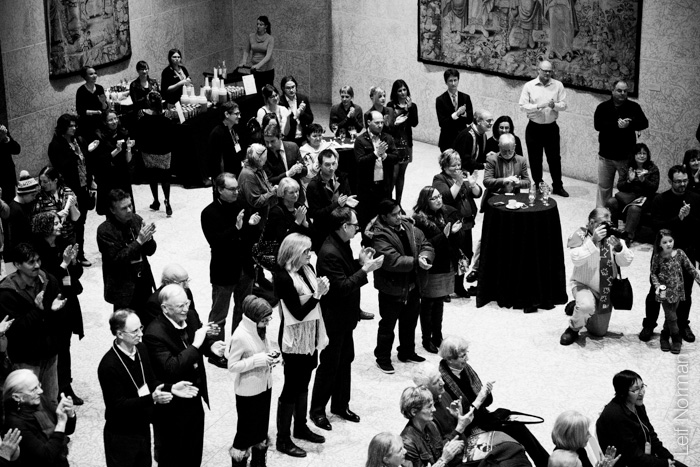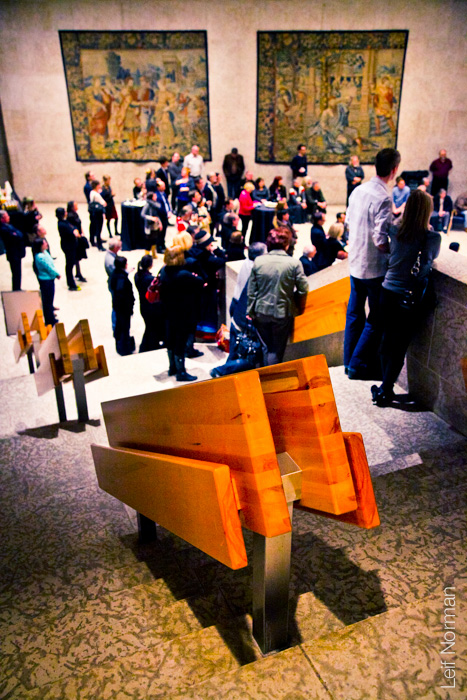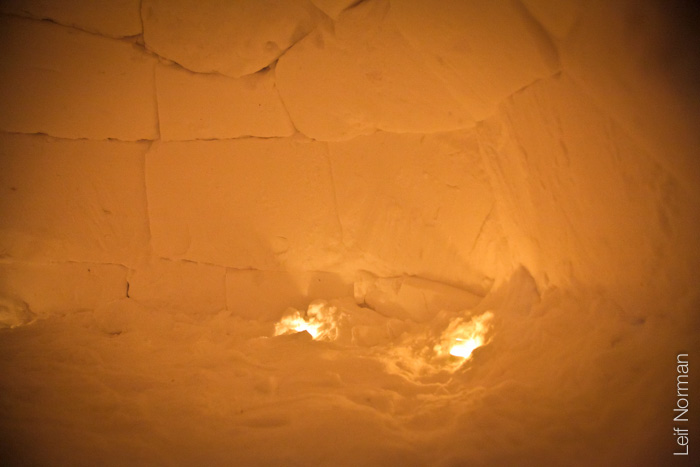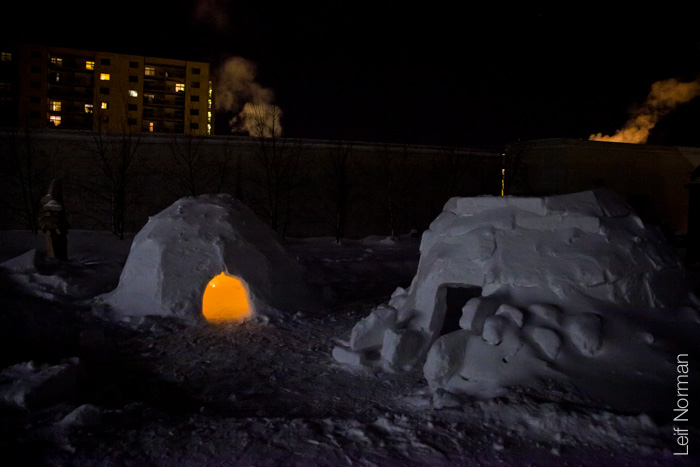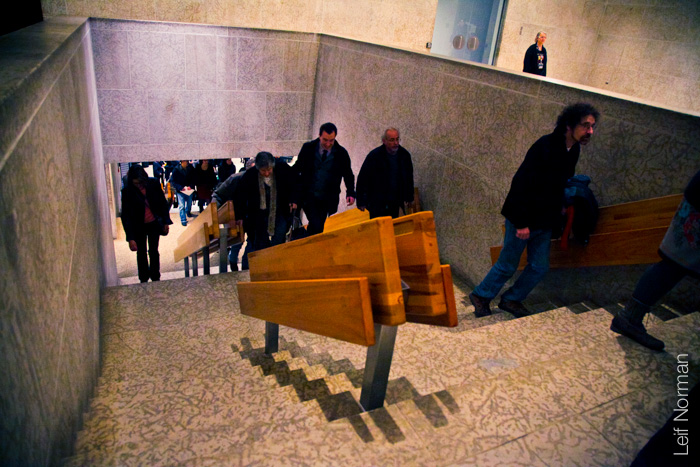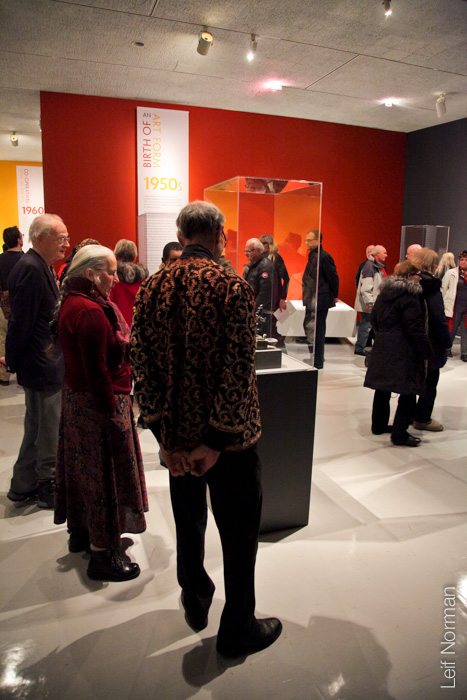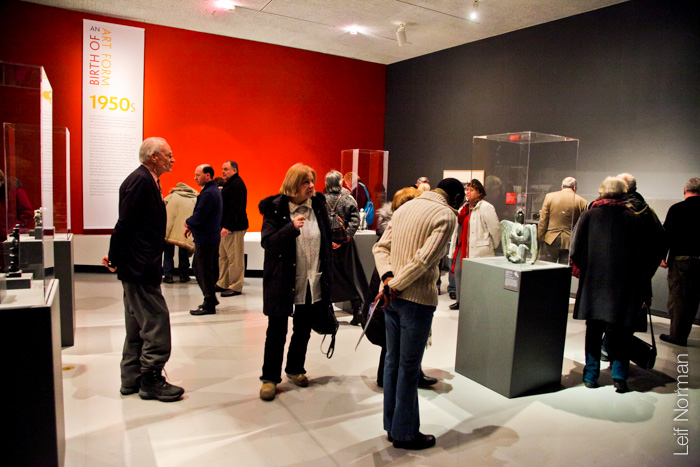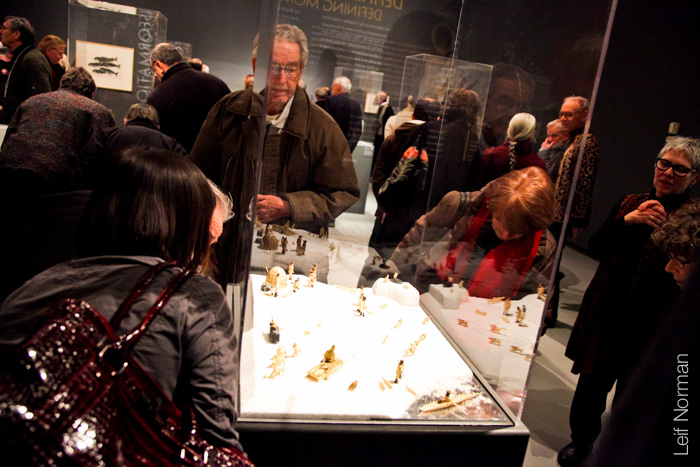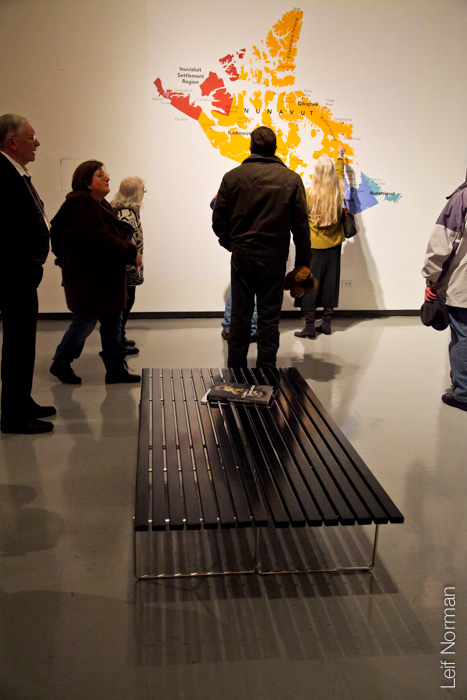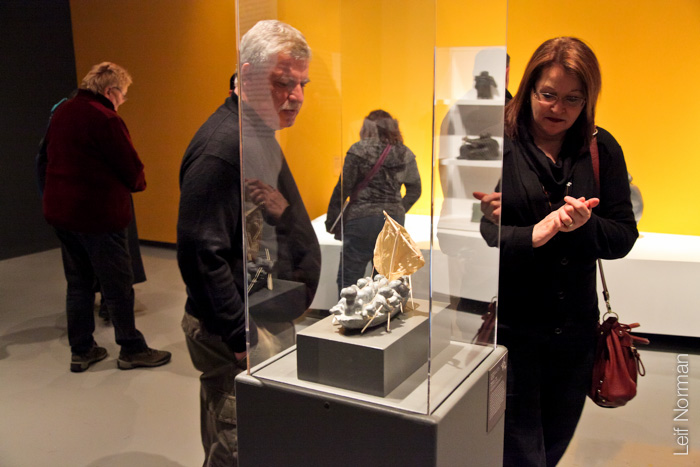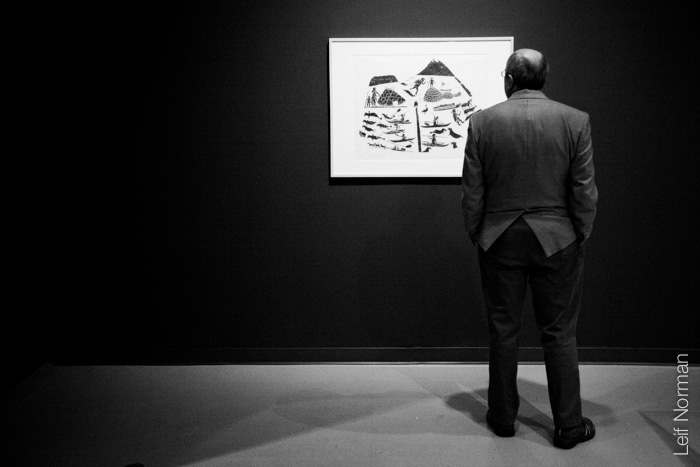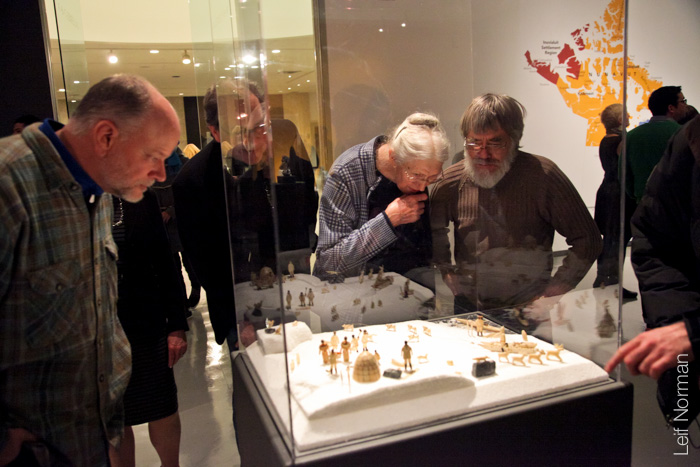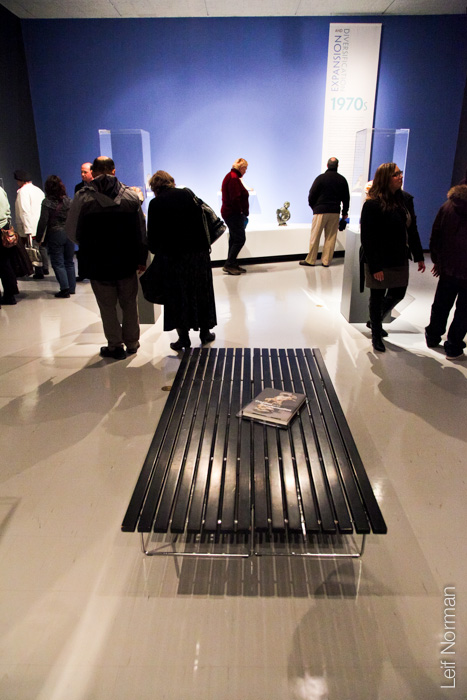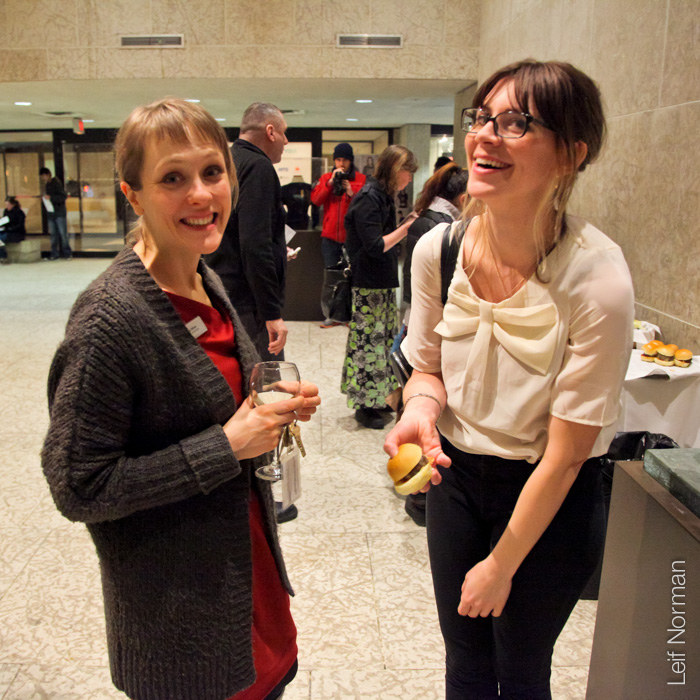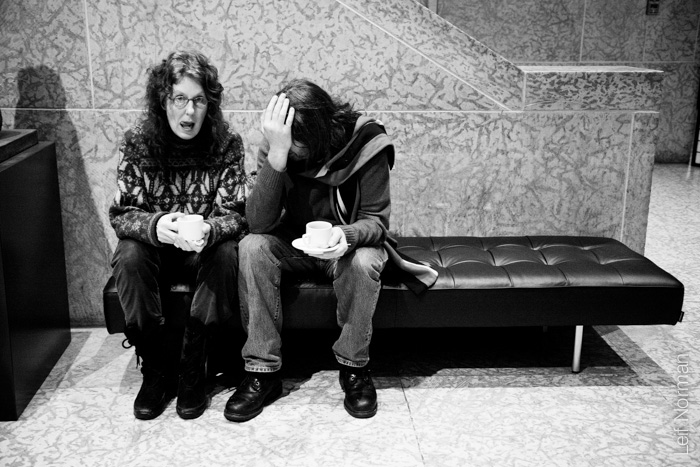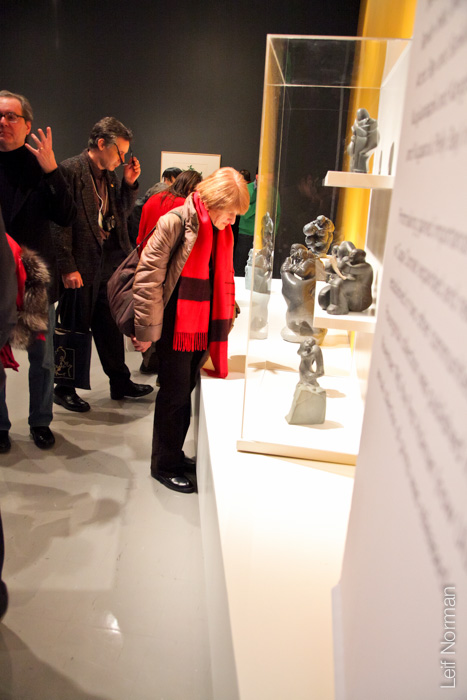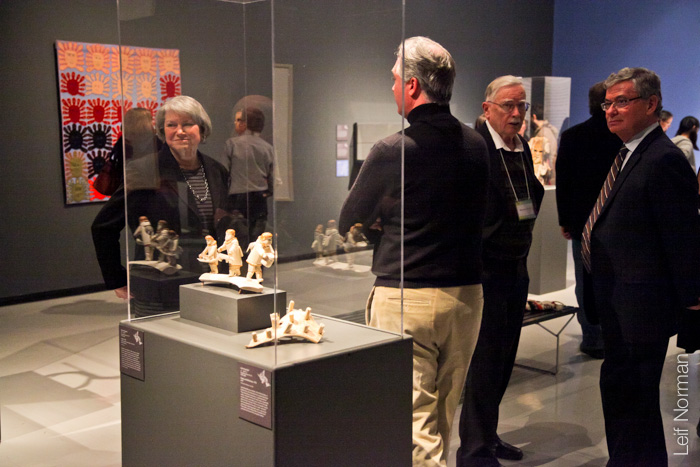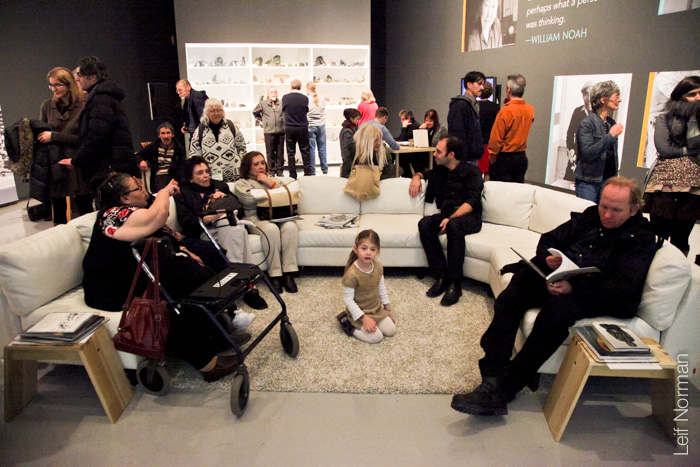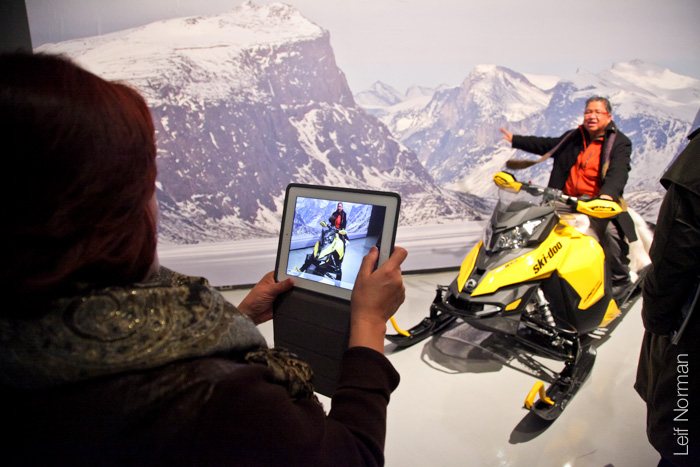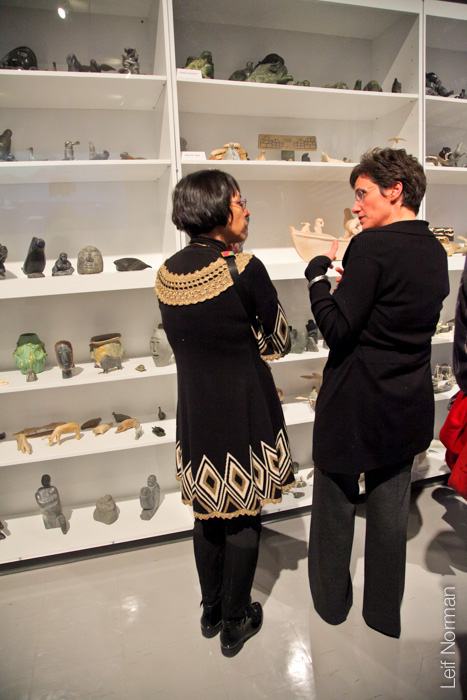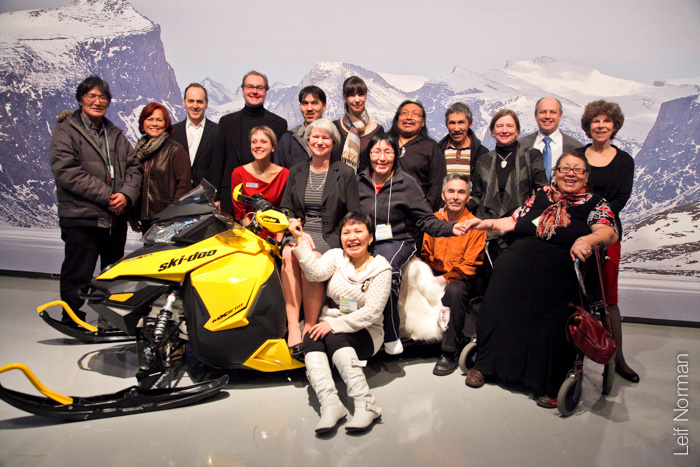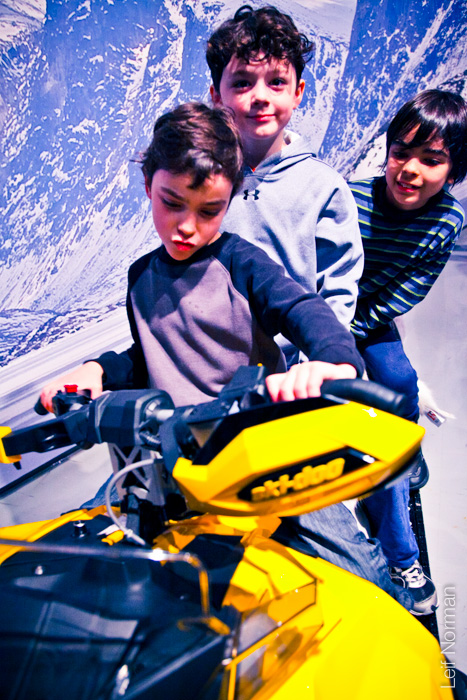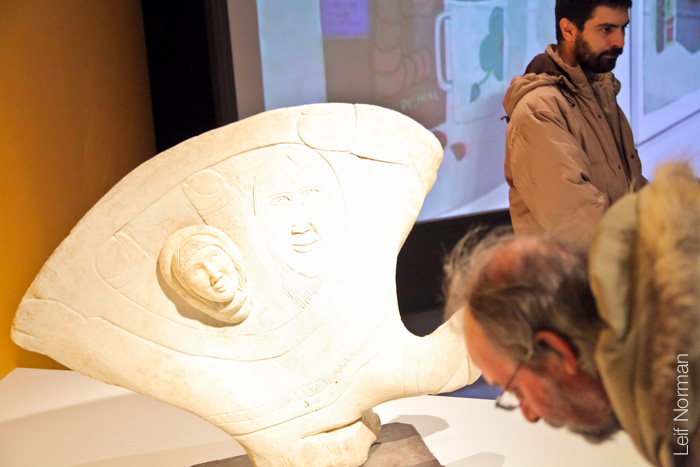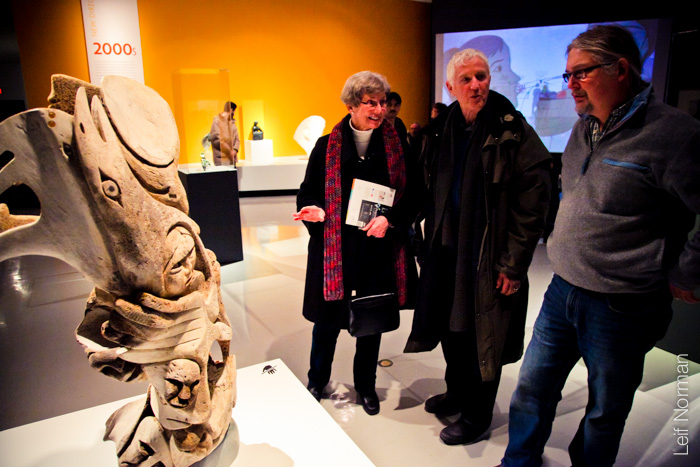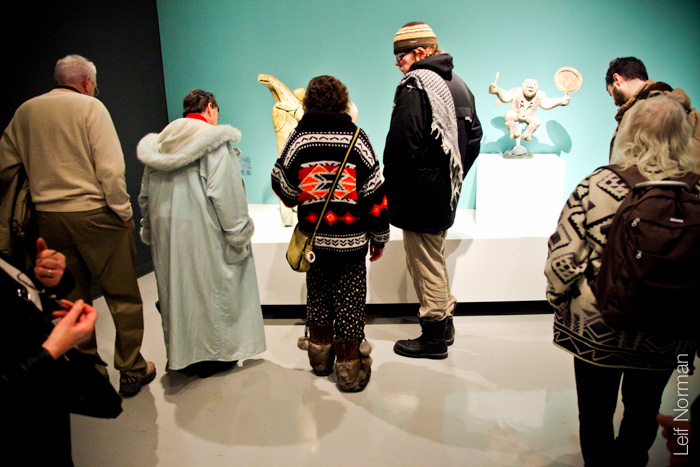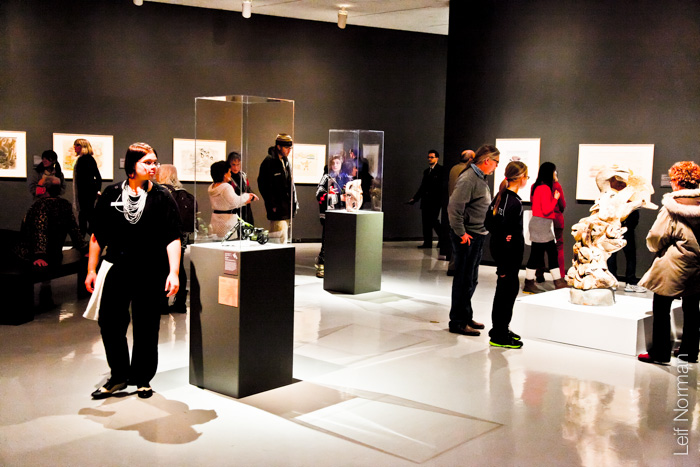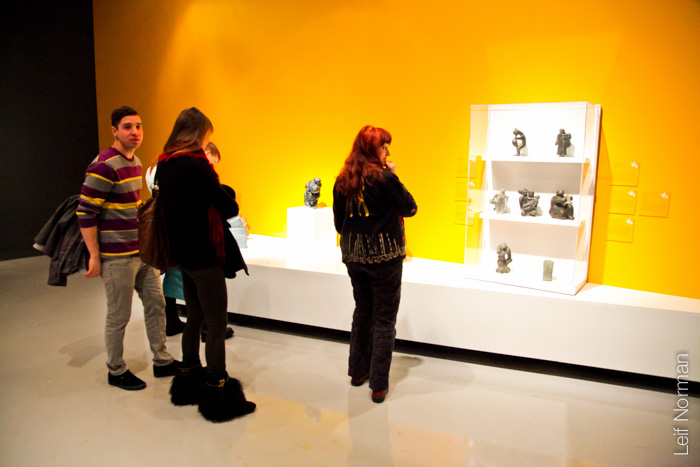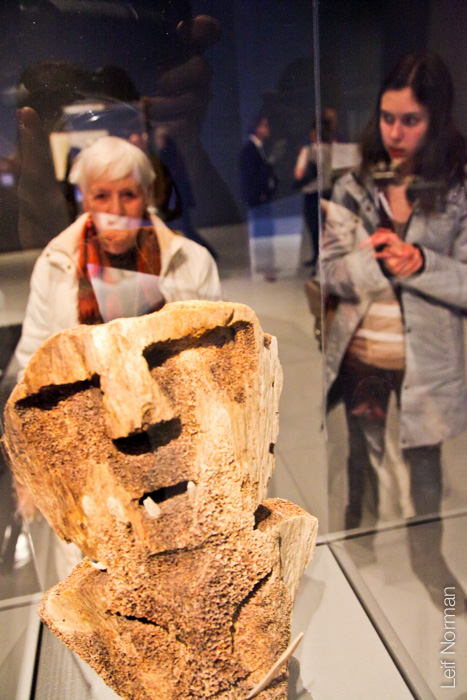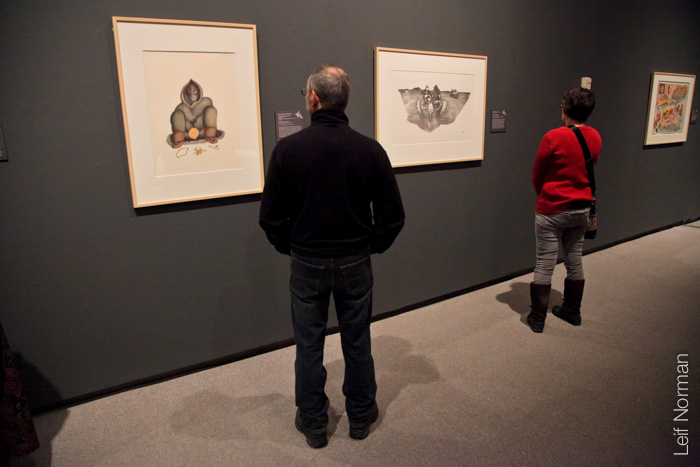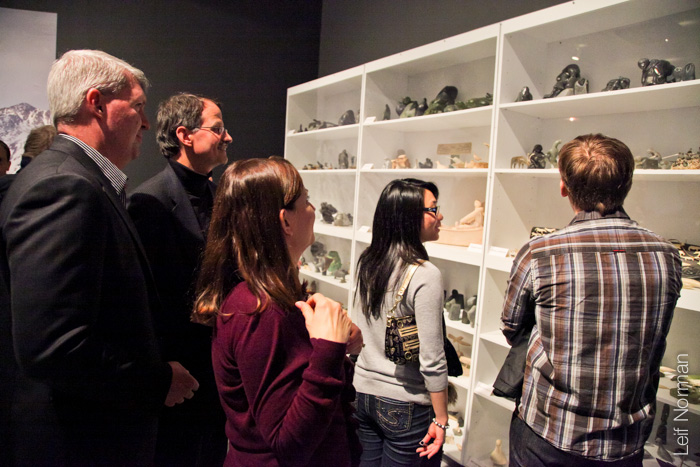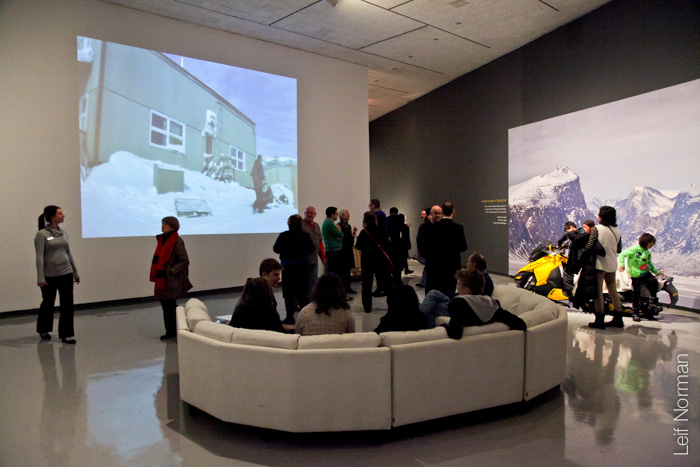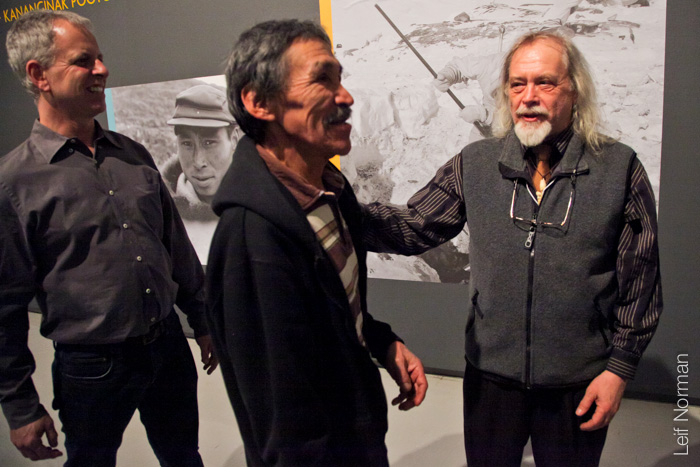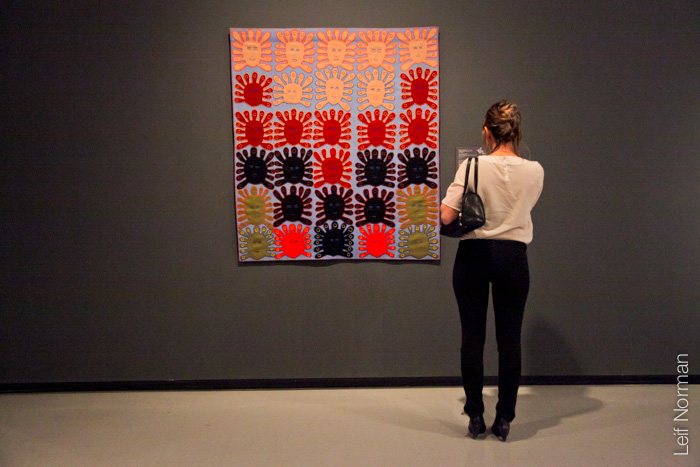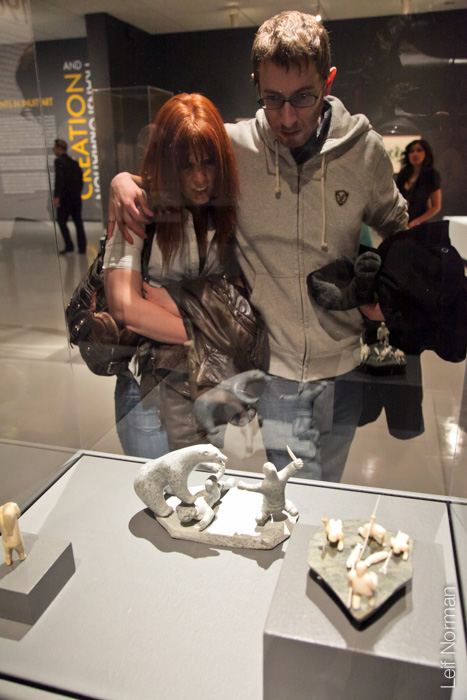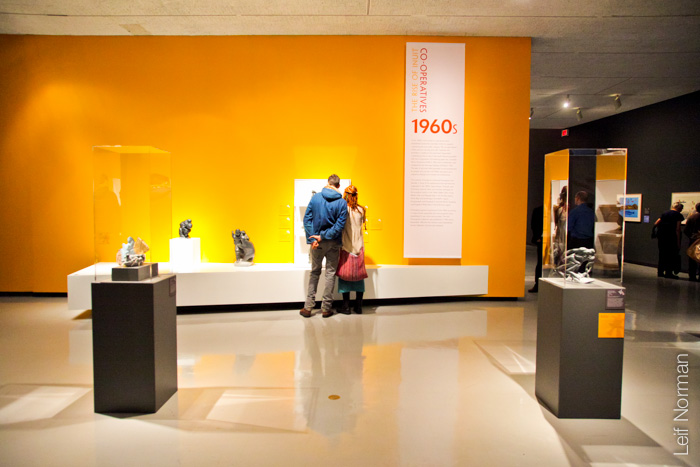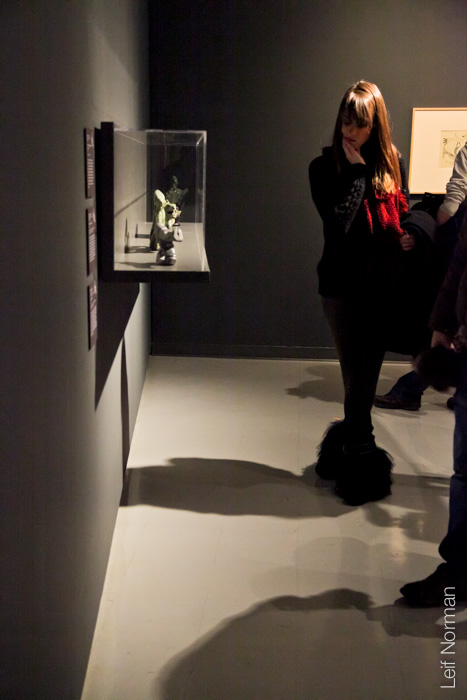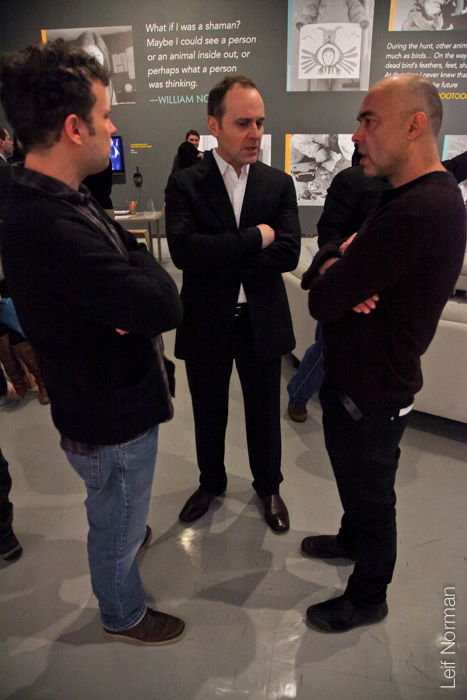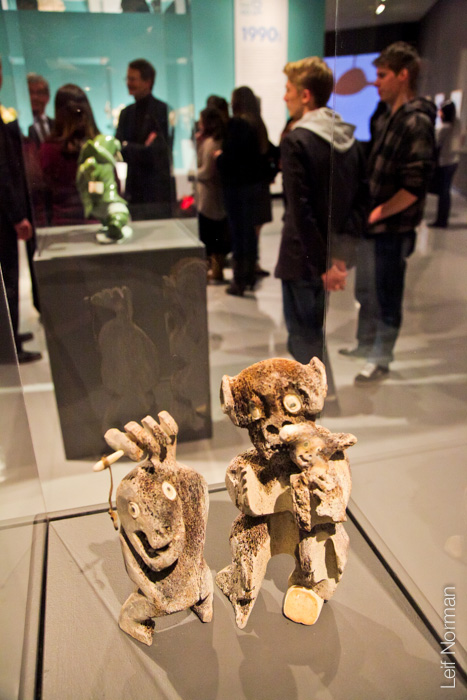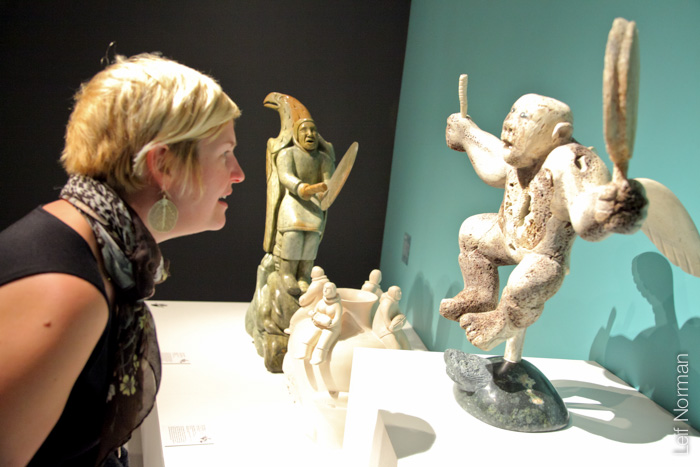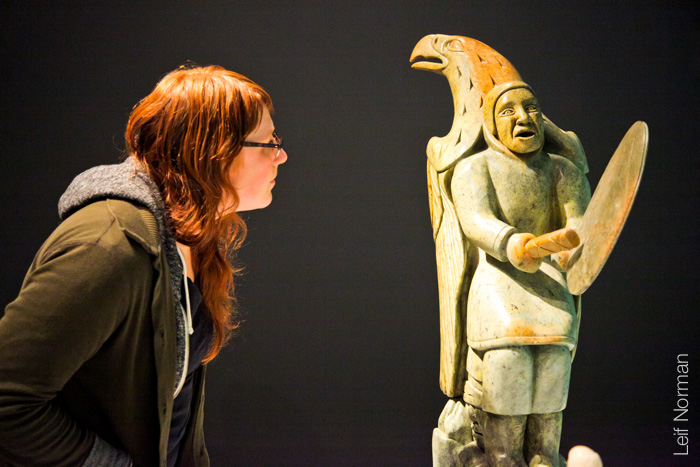Opening Night
Creation & Transformation: Defining Moments in Inuit Art
January 25, 2013 to April 14, 2013
From the WAG website;
“The collection of Inuit art held by the Winnipeg Art Gallery is extraordinary by any standard: its geographic range, diverse media, and its size have brought international renown to the collection of 13,000 artworks. As the WAG celebrates its 100th anniversary in 2012–2013, this major exhibition of 115 artworks will reveal the scope of the collection and will feature many of the Gallery’s treasures as it marks this important milestone. Organized chronologically, the exhibition will demonstrate the genesis and evolution of contemporary Inuit art from 1949 to the present day: from carvers in the 1950s, such as Johnny Inukpuk, to later story-tellers in stone, such as Davidialuk Alasua Amittu, and in whale bone such as Karoo Ashevak; from pioneer graphic artist, Jessie Oonark, to graphic artists working today in new and personal idioms, such as Shuvinai Ashoona. The exhibition will be curated by WAG Curator of Inuit Art, Darlene Coward Wight and will be a celebration of creativity that has had many transformations over six decades.
To honour the scale and importance of this exhibition, and in partnership with the WAG, Douglas & McIntyre has published a large, high quality book that will speak not only to the history and genesis of contemporary Inuit art, but to the wealth and breadth of the WAG’s Inuit art collection. This new historical narrative will be revealed in essays by international authorities Susan Gustavison, Ingo Hessel, Christine Lalonde, and Norman Vorano, led by the Winnipeg Art Gallery’s Curator of Inuit Art, Darlene Coward Wight, one of the world’s leading scholars in the field. The 256-page hard cover book features 140 colour and archival images and is available in the Gallery Shop for $65. It will be officially launched at McNally Robinson Booksellers at 7pm on Thursday, November 15.”
From http://www.gallerieswest.ca
1950s: Commercialism expands after a 1949 exhibition of Inuit carvings at the Canadian Handicrafts Guild in Montreal marks the start of an arts-and-crafts industry that will transform life for many Inuit. James Houston, a young artist originally from Toronto, travels in the North.
1960s: Inuit-owned cooperatives are established across the Canadian Arctic to support a growing industry that provides work for people moving into settlements. Sculpture continues to be produced and printmaking grows in importance.
1970s: A time of expansion, especially for prints and textile arts, with new printmaking projects in Baker Lake, Pangnirtung and Arctic Quebec.
1980s: Sales fall due to the global recession. The National Gallery of Canada begins collecting Inuit and other indigenous art.
1990s: Some artists start to work independently, connecting with dealers and curators through the Internet and taking advantage of improved travel.
2000s: Social, political and economic changes in the North are reflected in a new cultural momentum that includes the fast rise of artist Annie Pootoogook, winner of the Sobey Art Award in 2006. Public galleries and museums highlight their collections in large shows.
Source: Creation and Transformation: Defining Moments in Inuit Art
